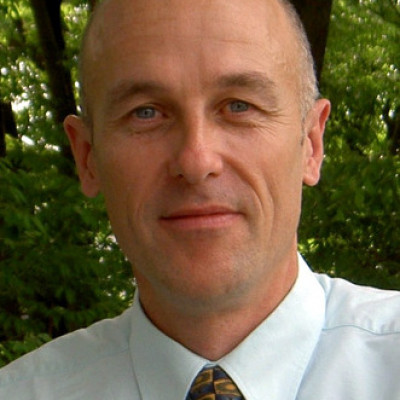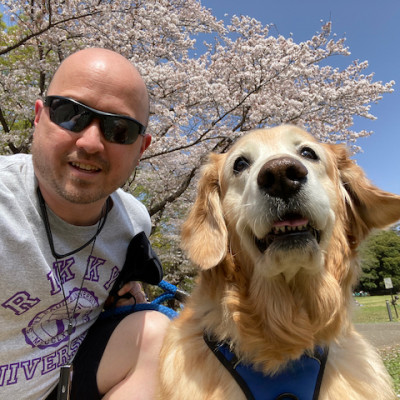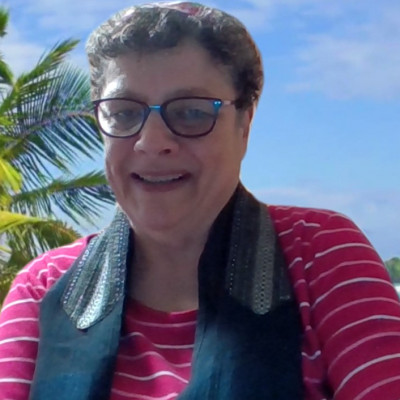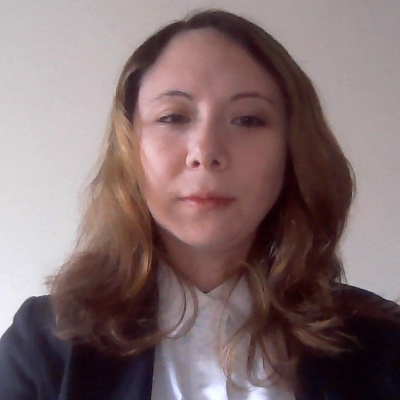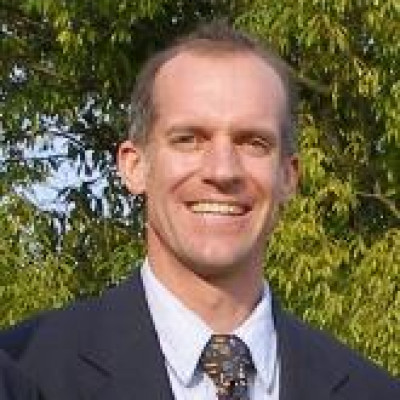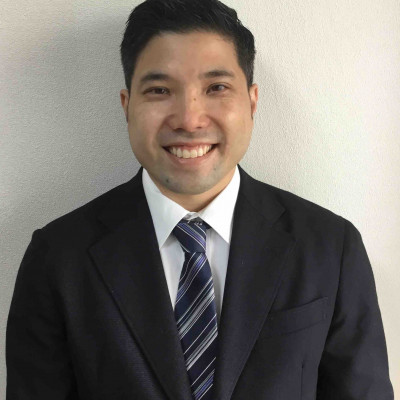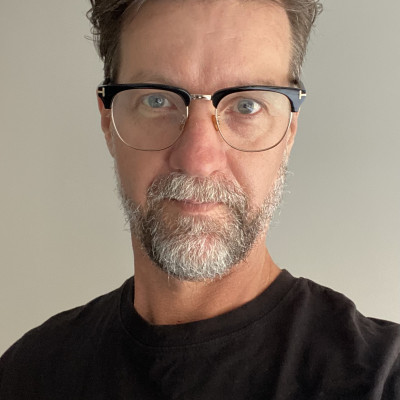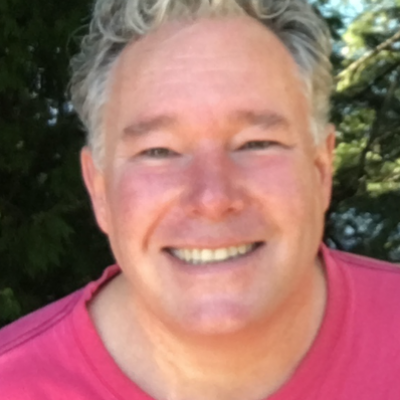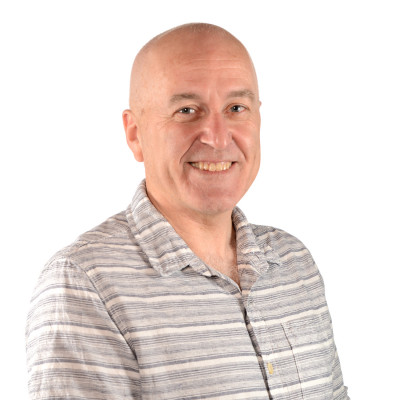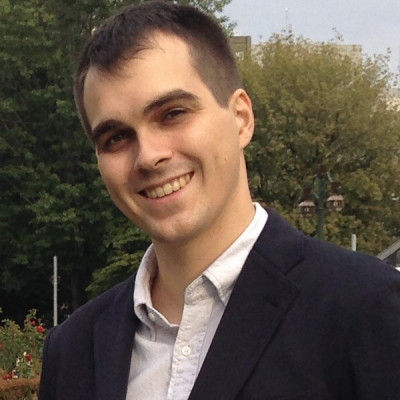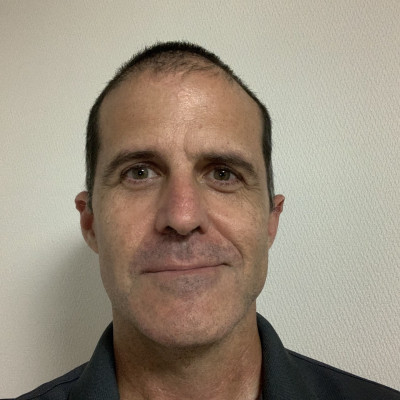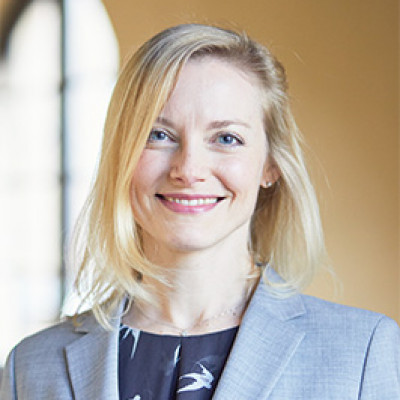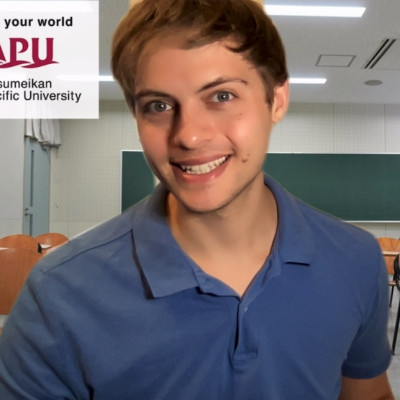Schedule Go Compact (displays all)
You can use Quick Lookup to quickly find sessions. But best is to use the LIVE SCHEDULE during the conference itself.
Please note
You didn't select any categories, so the first 120 from today are displayed. You may want to select a particular day or category if you want to ensure all (including untimed) are displayed.
Developing a Phrasebank: A Critical Examination of Phrasal Lists #2080
The study outlined in this poster presentation examined phrasal expression lists to determine characteristics, strengths and weaknesses, and whether a particular type of list might be lacking. Examining factors related to the process undertaken in producing each list and concerning the product itself revealed that existing phrasal lists were typically either research-focused or pedagogically-focused. Results highlight factors to consider when producing an empirically-derived phrasal expression list that is of direct value to L2 students.
Virtual Exchange to Increase Students’ Intercultural Competence #2097
Virtual exchange (VE) often suffers from an over-reliance on individual teachers and specific courses. This presentation outlines a project, showing how the authors increased VE opportunities, starting with creating a model of the attitudes, knowledge, skills, and values the researchers hoped VE would instill. Students worked towards these outcomes through several modes of VE which were evaluated using BEVI-j and interviews. This presentation will share the results, now being used to improve access to VE.
Cancelled Measuring and Developing Second Language Self-Efficacy #2113
When acquiring a new skill, such as using a second language, learners who have high self-efficacy—who believe that they can complete the tasks necessary to achieve growth—are more likely to work hard to advance and overcome obstacles (Bandura, 1977). This poster presentation demonstrates how L2 self-efficacy can be measured, and promoted, in various learning contexts. To demonstrate, the presenter offers a Rasch-validated measurement of L2 English listening self-efficacy to visitors as a model.
Using a Formative Module to Develop Oral Communication Skills #2121
The presenter will share a teaching experience using a formative assessment module with large classes in presentation class. The formative model mainly consists of individual presentations, group presentations, pre-recorded videos, and group poster presentations. Each task of the module was graded based on the presentation outline, design of PowerPoint and poster, presentation skills, etc. By applying the formative module, the study found that the students increased their confidence in speaking and improved their presentation skills.
How to Create an Effective On-Demand Video – From Students’ Perspectives #2135
Providing on-demand videos has become one alternative to teaching, due to the pandemic. Teachers normally tend to focus on the context and think less about the video itself, which is a significant tool when teaching online. This presentation will introduce key points to create an effective and learner-friendly video, based on the survey conducted with university students. Moreover, the presenter will discuss further possibilities of how on-demand videos can potentially enhance students' engagement in learning.
An Evaluation of an Extensive Listening Pilot Program #2138
Very few would question the efficacy of extensive listening in building students’ L2 listening fluency and proficiency. In this poster presentation, the researchers present an extensive listening pilot program and study in which a group of university students listened to graded readers over a semester. The researchers will also present the results of the study and suggestions for alterations to the program and future research.
Cancelled Professional Development of JTEs Using Knowledge-Building Pedagogy #2161
In Japan, the Ministry of Education’s (MEXT) national curriculum regarding the subject of English has continuously emphasized the development of students’ communicative abilities. Teacher development is critical to meet needs for curricula that are aimed at going beyond knowledge transmission teaching to knowledge creation and innovation using a knowledge-building pedagogy. The study offers two models that are applicable to teacher development in helping teachers meet curricula that are focused on knowledge creation.
Using Synonyms to Improve Low-Proficiency Learner Vocabulary #2174
An overview of a preliminary stage in a proposed study of activities using synonyms in a reading class to improve the vocabulary of low-proficiency learners (average and mean TOEIC scores of 340). The poster will show examples of activities, student output and as well as data collected. The presenter hopes to share insights with other educators to foster improved vocabulary teaching practices.
Reflections on Becoming a Learning Advisor #1945
This poster and presenter give details and reflections on the presenter’s experience of qualifying as a learning advisor through a Learning Advisor Education (LAE) program completed over the 2020-2021 academic year. The program comprises 5 courses, each of which can be taken separately, though an internationally recognised qualification as a Learning Advisor (LA) is available upon completion of all 5 courses. The program relates to Advising in Language Learning (ALL), mentoring, and teacher leadership.
Developing a Phonics Education Framework for Junior High Schools #2203
The phonics program started at an elementary school in Kumano, Mie in 2019 as a pilot project. When the first group of students matriculated to the secondary level in 2020, the Jolly Phonics approach, which was designed for younger learners, was modified to fit the junior high students’ language abilities and intellectual levels. Teaching phonics in English and phonics exercises are some of the modifications employed as part of the junior high school format.
Producing a Podcast During the Pandemic #2235
Our university's popular overseas research clerkship program for 2nd year students was suddenly canceled during the pandemic. Rather than also cut the preparatory classes, we decided to try something new. This was the genesis of English Communication: Podcasts & Podcasting. By the end of the semester, we created ten episodes with listeners from more than twenty countries. Come and learn how you can start something similar at your school.
Improving the BETs: Searching for Validity and Online Feasibility #1981
This poster outlines the development of a streaming and CEFR level-assessing end-of-course test for first- and second-year students. Considering the issues faced in establishing validity, it describes the three-stage Rasch, Excel and text analysis process that has evolved to now form the basis of our annual review and rewriting procedure. It also addresses problems faced in further streamlining and adapting from a paper test to an online test fit for COVID times.
Activities to Improve the Structural Quality of Arguments in Essay Writing #2241
This poster presentation explores how teachers can address argumentation in an academic writing course by offering material that helps learners identify, analyze and evaluate effective arguments. The presentation includes specific activities and techniques on identifying the elements and structure of an argument, determining the relevance of reasons and the sufficiency of evidence, and applying rubrics to examine the structural quality of arguments. Materials are available for teachers to implement in their classrooms immediately.
Foreign Language Enjoyment and Anxiety in the Communicative Classroom #1987
This poster examines the relationship between foreign language enjoyment and foreign language anxiety among Japanese English learners in a university-level oral communication course. Results from survey data and learner comments on experiences that engendered enjoyment and anxiety are discussed, as well as implications for increasing enjoyment and reducing anxiety in oral communication courses.
Cancelled A Review of 2 Corpus-Based Tools for Language Learners: Youglish and SKEll #2001
Corpus-based tools can help L2 users improve their vocabulary knowledge by providing real-world examples and context which can enable them to discover facts and notice patterns by themselves. The YouTube based tool, Youglish, and the language learner version of the Sketch Engine corpus, SKEll will be reviewed, considering strengths and limitations. In addition, how the tools can be presented to students and their potential benefits for use in writing courses will be discussed.
Students’ Reaction to a Choice Between Flipgrid and Google Meet #2014
This observational study examines students’ reaction to choices between Flipgrid and Google Meet for participation in communicative or oral production activities in online English courses offered at a private university in Japan. Results indicate that students appreciated having a choice, and while a majority more often chose the live Google Meet sessions, this depended largely on class makeup.
Cultural Representation Analysis in Foreign Language Activities Textbooks #2034
This study analyzed the current Foreign Language Activities textbooks copyrighted by MEXT and examined how they aim to equip students with communication skills in a response to globalizing society, with particular emphasis on foreign cultural representation. This study employed Yuen’s (2011) model to analyze the textbooks. It was found that a disproportionate number of non-Japanese countries and areas were represented, and the unbalanced cultural aspect representations were seen in the textbooks.
Thursday Night Help Desk #2459
This is our second session to help participants get comfortable with Edzil.la or just test their system to make sure they can have the best conference experience as possible. Please come and join us with any questions you might have and leave the tech stuff up to us!
Tuesday Afternoon Help Desk #2492
If you need help with anything related to JALT2021 come and find your answer. If you want to see the conference platform, even test out your slides, etc., come and do what you need to do. Someone will be on hand to help you. Sessions will be running all week leading up to the conference!
Wednesday Afternoon Help Desk #2493
If you need help with anything related to JALT2021 come and find your answer. If you want to see the conference platform, even test out your slides, etc., come and do what you need to do. Someone will be on hand to help you. Sessions will be running all week leading up to the conference!
How to Customize Your Session Page #2498
Meet with the Edzil.la team to learn how to take advantage of the conference website to best represent your presentation.
Wednesday Night Help Desk #2494
If you need help with anything related to JALT2021 come and find your answer. If you want to see the conference platform, even test out your slides, etc., come and do what you need to do. Someone will be on hand to help you. Sessions will be running all week leading up to the conference!
Thursday Night Help Desk #2495
If you need help with anything related to JALT2021 come and find your answer. If you want to see the conference platform, even test out your slides, etc., come and do what you need to do. Someone will be on hand to help you. Sessions will be running all week leading up to the conference!
Help Desk/Continued Presentation Discussions #2477
After a presentation finishes, come here to continue the discussion.
i.e. If your presentation was in Zoom room 1, please go to Breakout room 1 in this room.
Making an Attractive Website With Moodle #1902
Moodle is familiar among language teachers as a Learner Management System. However, by simply copying and pasting some basic HTML computer language, Moodle can also be used to create attractive, easy-to-navigate websites. With reference to a website created for teachers at a university, the presenter will explain how to make use of standard Moodle features, as well as some simple HTML. The presenter will also share ideas about user-friendly design and avoiding pitfalls. The workshop is suitable for people with no HTML experience, as well as those who are interested in learning how to expand the potential of Moodle.
How Language Assessment Works: Rating Spoken Production Using the CEFR #1903
The Japanese national curriculum specifies balanced teaching of speaking, reading, listening and writing -- and universities are moving towards assessing all four skills. As part of this movement, Tokyo University of Foreign Studies and the British Council have jointly developed a Speaking Test for university entrance purposes called BCT-S, a localised version of the British Council’s global Aptis test. In this hands-on session, attendees will work with tasks, speaking samples and rating criteria from the Aptis test to better understand, in concrete terms, the way these tests rate candidate’s speaking performance using the CEFR descriptors.
Synchronous Online Flipped Learning Approach – SOFLA® #1905
The Synchronous Online Flipped Learning Approach, or SOFLA, (Marshall, 2017; Marshall & Rodriguez Buitrago, 2017; Marshall & Kostka, 2020) combines two separate learning pathways that, in combination, can result in robust instruction: the Community of Inquiry (CoI) framework for online teaching (Garrison, Anderson, & Archer, 2000) and flipped learning (Bergmann & Sams, 2012). The presenter takes participants through the eight steps of SOFLA: (1) Pre-Work; (2) Sign-In; (3) Whole Group Application; (4) Breakouts; (5) Share-Out; (6) Preview and Discovery; (7) Assignment Instructions; and (8) Reflection. Guidelines, rationale, and caveats for each step are provided, with examples from the presenter’s classroom.
Using Zoom to Record On-Demand Teaching Content #1912
Due to the pandemic, many educators became familiar with using Zoom to teach live lessons online. Zoom is also useful for making videos that can be available on-demand to supplement in-class teaching. This workshop will demonstrate how to take full advantage of Zoom's features including using slides as a virtual background. Slide design for optimizing this feature will be demonstrated. Participants can try these features out on their own computers or simply observe. Questions and suggestions from participants are welcome.
A New Statistics Online App for Exploratory and Explanatory Data Analysis #1915
I will introduce an online application created to help with quantitative data analysis based around New Statistics principles (Cumming, 2012). The application is easy to use, providing exploratory and explanatory output appropriate for use in research publications, presentations, or dissertations. The focus is on the generation of statistics for the estimation of the size and direction of research interventions: effect sizes, confidence intervals, and data-rich graphical plots. This is in keeping with current recommendations for quantitative research, moving beyond problematic issues surrounding statistical significance testing. The theoretical background and practical usage of the application will be covered.
Net Gain: Multiplatform Approach to Distance ESP Classes #1909
Remote learning demands teachers be more resourceful, tech savvy, and creative than ever. This session introduces successful, concrete techniques for a productive, student-centered environment at a distance, predicated on original simultaneous interfacing of Zoom and Teams with LMS follow-up. Focus will be on ESP projects (medical, international horticulture majors) including multimedia presentations, tasks, out-of-class online group meetings, as well as alternative testing and large class management techniques. Workshop participants will experience/evaluate games, quick tasks, and projects. They will also view class video clips, and brainstorm ideas to increase the “net gain,” to perhaps make these multiplatform techniques their own.
Microsoft Teams and Class Notebooks: Online and Face-to-Face #1900
Microsoft Teams is a fantastic resource for universities with Office 365 subscriptions. Used in conjunction with software available through the subscription, you can create a rich learning environment. This workshop will go through how to set up and get the most out of a Teams course. Topics include creating a Team and Class Notebook, Teams channels, creating and assessing assignments (quizzes through Forms, attached Office files, the Class Notebook), sharing content with Class Notebooks (videos, individual feedback, handouts), and Teams Meetings. This workshop will give you a clear understanding of Team’s capabilities, limitations, and how to use it.
Using Corpora to Create Academic Writing Assignments #1908
Quite often universities require students to write academic essays that students might not be prepared for. Having an assignment sheet with grammatical patterns and commonly used words makes it easier for students to write the required essays. The workshop will focus on creating an assignment sheet for an academic writing topic: this includes vocabulary, collocations, colligations, and patterns. The vocabulary list, collocations, colligations, and frames would come from corpora. It is not necessary to have prior knowledge on how to do searches using corpora as they will be explained in the workshop step by step.
Presentation Design and Delivery for Improved Classroom Lessons #1913
Although educators invest in knowing the content they teach, they may prepare slideshows as visual aids that are ineffective and counterproductive. Text-heavy slides reflect a knowledge-transfer approach instead of a constructivist approach. This workshop will demonstrate slide design from a multimedia learning perspective (Mayer, 2009) that is more effective. Additionally, tips will be given for slideshow delivery. Participants will be encouraged to ask questions and share ideas in this interactive workshop.
Designing Computer-Scored Speaking Tasks #1917
This workshop will guide participants through the process of creating and administering online speaking tasks in Moodle using a custom speech assessment quiz-type. The speaking tasks can either be automatically scored by the computer or manually scored by the teacher. Sample speaking tasks can include audio, video or text prompts and can include a mixture of open-ended and closed-ended tasks. Participants will have the opportunity to demo sample computer-scored speaking tasks and to design their own custom speaking tasks. At the end, download and installation of the speech assessment quiz-type will be covered.
A Tutorial to Make Your Online Classes Look Like a YouTube Video #1904
In this workshop, participants will receive a hands-on explanation of how to produce high-quality video lectures as well as livestreams for platforms such as Zoom and Microsoft Teams. Aimed towards beginners, the contents of this workshop will cover necessary information about equipment and software so that participants will have the basic knowledge needed to begin producing content that can rival professional YouTube filmmakers. Though all of this information is already freely available online, the presenter will use his experience as an English teacher to focus on information that is most relevant to EFL teachers.
The Power of ‘Obsidian’ – Revolutionising the Way We Take Notes #1910
Note-taking is essential for any academic endeavour. Yet many curriculums fail to teach a systemised and effective approach to this skill. The repercussions are significant, more often than not resulting in substandard work being submitted by students. Inspired by Sönke Ahrens' breakout book 'How To Take Smart Notes', this workshop will cover the principles of taking smart notes and introduce a powerful note-taking app called 'Obsidian' that will help teachers and students alike optimise the thinking process.
What Is an Effective EdTech PD Program, and How to Develop and Evaluate One #1911
As the GIGA school program spreads and as during #withCOVID and #postCOVID schools start to more frequently use LMSs and other educational technology for course delivery, there were be more and more professional development (PD) programs offered. This means more people will be called on to deliver effective PD programs. This workshop will go over frameworks based on the actual research on what makes a PD program effective and lasting. We will go over what an effective PD looks like, how to develop one, and then how to evaluate it, ensuring it gets better for the next iteration.
Incorporating International Language and Culture Exchanges Into Your Classes #1901
Since 2015 over 25,000 students from 25 countries have participated in the IVEProject, an international online exchange where students use the English they are studying in class to interact with peers around the world. The workshop will showcase the project: the research showing its benefits to linguistic, intercultural and communicative competence; the ways it can be incorporated into your syllabus; and the joy it can bring to students who participate. If you want your students to use the English they are studying in class to interact with others around the world, come to this workshop. It is easy and free-of-charge.
Moving Through and Moving On: Pivot, Reflect, Develop, and Grow #1914
The turbulence of the 2020 academic year onwards has taught us how to react, reflect, and respond. Reacting to the abrupt pivot from face-to-face classes to online. And back again. Yet simultaneously serving as lighthouses for students by providing stability in a world of uncertainty by developing coping mechanisms and renewing our professional skill set. This workshop provides a platform in which teachers can reflect upon their experiences with teaching during the pandemic and how they overcame these herculean challenges through discussions and reflective dialogues. These discussions and dialogues will be divided into four sections – pivot, reflect, develop, and grow.
Feedback, Peer-Evaluation, and Reflective Learning Procedures: An MFL Trinity #1916
In this workshop I will discuss my recent experiences fostering a reflective learning environment via (a) the delivery of accelerated teacher and peer feedback and (b) subsequently requiring students to submit reflections about their learning experiences using cloud computing (G Suite for Education).Outcomes of the workshop should include (1) Awareness of learner-centered pedagogical practices and how to implement them using cloud computing (2) Immediate knowledge of how to apply the Google Education Suite in varied educational settings, and (3) How to better communicate with students.
Designing Your Presentation Media #1898
Whether for presentations or classroom use, most of us just "make" our media, often with little regard to functionality or aesthetics. This workshop will focus on ways to add useful design elements to your Keynote or PowerPoint slides. Putting more thought into how your media looks and behaves will make your presentations more appealing to audiences, easier to understand, efficient to create, and simpler to control. During the workshop, I will demonstrate some techniques I've found useful, and then set a couple of design tasks to complete. Please bring a device with either Keynote or PowerPoint installed.
Equity in JALT: Sharing Our Vision #1906
The ability to demonstrate one’s familiarity with diversity and equity practices (DEP) is a great asset on the job market. In this workshop, three members of the JALT DEP Committee will share their expertise in three areas of common concern among JALT members: hiring practices, harassment prevention, and accountability, both personal and organizational. After short presentations on these three areas to establish common ground, participants will be invited to join the group of their choice to discuss related issues. We will then regroup at the end, and each group will share the fruits of their discussion.
Bringing Out Student Creativity Through Speaking Activities With Flipgrid #1907
This presentation will focus on the use of Flipgrid, a mobile application that allows students to record “selfie” video responses to a teacher’s prompt as an option for asynchronous speaking activities. The presenters will discuss their experiences using Flipgrid as graded speaking activities in their English classes at two universities, focusing on the successes and failures. The presenters will lead a discussion that will focus on how Flipgrid could be used in other ways, including in hybrid and f2f classes. Participants will leave with an understanding of Flipgrid and how it could be implemented into their teaching context.
Machine Translation-Supported Writing #1918
Student use of machine translation apps to complete writing assignments is prevalent and persistent. Instead of discouraging its use, I believe we can help students use it effectively as part of the writing process. Specifically, machine translation can be used to increase L1 and L2 text analysis and rewriting, and improve L2 writing output. In this workshop, participants will experience a machine translation workflow in which they analyze, pre-edit, and post-edit a passage.
Facilitating Engagement and Interactivity With a Virtual Lesson Platform #1899
Research has shown that Nearpod promotes active learning through its ability to facilitate collaborative participation between students, teachers, and lesson content (Amasha et al., 2018, Hakami, 2020). My workshop will showcase how Nearpod can be used for effective discussions, reading activities, vocabulary activities, student-paced assignments, informing future instruction through its post-class reports feature, and more. Teachers will receive opportunities to test the functions as well. Finally, I will share the results of a quantitative survey of student self-reported perceptions of Nearpod, which indicated that students felt an overall positive effect on their motivation and interaction in their English classes.
Reflective Practice to Understand Your Teaching and Yourself #1919
This workshop will provide participants with opportunities to engage in reflective practice (RP) to better understand their teaching and themselves. The presenters will explain definitions of RP, highlight Farrell’s six principles of RP (2019), and introduce tools for engaging in RP. Participants will be encouraged to try some tools and share about their respective situations. It is hoped that participants will be motivated to engage in such practices when they return to their own contexts.
Reflections on Traditional ‘TESOL’ Curricula and New Perspectives #2407
The globalisation of the English language raises several questions about how to prepare English language learners in today’s globalised world. Leading scholars to call for a further paradigm shift. In this talk, I explore research in the field of Global Englishes that calls for new perspectives to ensure TESOL curricula match the new sociolinguistic landscape of the 21st century. I end with an examination of Global Englishes technological innovations and a new innovative online network.
Friday Night Help Desk # 2 #2455
Please come and join us for our final help desk session to answer any questions you have. We hope to make the conference as easy for you as possible so you can concentrate on your professional development and your presentation. Leave the tech stuff up to us!
Student Room Host Training #2486
Student Room Hosts, Please join this session for training.
First Timer's Welcome Social #2499
Is this your first time at JALT, a little nervous, well you are not alone. Please come tonight and meet some of your fellow presenters! Some of us are not as scary as we look (lol)!
JALT2021 Opening Ceremony #2497
Please join us for the JALT2021 Opening Ceremony!
The Digital Generation’s Language Use and Abilities #2411
As the use of digital technology continues to increase, the types of communicative competencies that are needed in this digital era are also evolving. Focusing on young people born after 2000 (whom I refer to as the “digital generation”), I address how they use digital technologies today and what kinds of communicative abilities are called for in this new era of advancing digital technology.
The Fine Art of Explaining Japanese Culture #2310
One difficulty for many EFL teachers facing oral discussion classes relates to the simple issue of conversational topics. Some topics might be either uninteresting or unfamiliar to some students making it difficult for them to contribute opinions or questions. Explain It: Discussing Japanese Culture in English is a textbook solving this problem, helping students to explore their own culture and opinions about it. Topics range from sports, handicrafts, superstitions, the arts, and theater, among others.
Performance in Education SIG Forum #2314
The performance in education (PIE) SIG forum will feature a series of mini presentations and performances with a number of PIE practitioners who are enthusiastic about bringing performative elements into their language classrooms. The forum will focus on the reflections of performance assisted learning (PAL) activities that were carried out during the pandemic and new perspectives towards the next academic year. The presenters are looking forward to seeing you in this informative and entertaining forum!
Linguaskill, the AI Powered English Test Developed by Cambridge English #2320
Linguaskill tests the real-life language needed for an academic environment with in-depth, accurate, individual and group reporting aligned with international standards. This means you can make confident placement and admissions decisions, and students have the skills they need for academic success and enhanced employability. The remote proctoring solutions and extensive learning solutions have helped learners to achieve their goals amid the pandemic. Find out more about Linguaskill and such solutions in our session.
English Teacher Motivation in Japanese Secondary Schools #2070
This study investigated English teacher motivation in Japanese secondary schools. Participants were two male Japanese teachers of English and their students. Data was collected through interviews, classroom observations, and focus-group interviews with students in one academic year. The findings showed that each teacher had unique motivation, and this was reflected in their teaching. Students also understood what teachers focused on. The study showed that teacher motivation can influence their teaching and their students.
Learner Development SIG Identities #2327
In this LD SIG forum, presenters will look at who the LD SIG is as a special interest group. What does learner development mean to SIG members? What experiences have members valued? What research have members embarked on? Where is the SIG going? How is the LD SIG interpretation of learner development evolving? The forum will feature timed rounds of interactive narratives highlighting themes such as self-regulation, autonomy, learner identities, and lifelong learning.
A New Textbook for Teaching Intercultural Communication in Language Classes #2333
Ibunka - Intercultural Communication in Daily Life, a new textbook and online platform from Alma Publishing, has two basic aims: (1) incorporate language scaffolding so that it can be used in intermediate-level language classes, and (2) tackle intercultural communication from the perspective of daily life habits rather than concepts, so that it is meaningful for average university students—even with limited life experience. The presenter will explain how this text can be used in various class contexts.
TEVAL SIG Annual General Meeting #2350
This is the meeting for the Testing and Evaluation Special Interest Group. All members and non-members are welcome to join. We will discuss recent work of the TEVAL SIG and plans for the upcoming year. If you have interest in testing and assessment in Japan and beyond, please join us.
Technology in Action: Student Filmmaking #2357
In this session, I will briefly report on a school filmmaking project I organised. This showcase session will show attendees just how creative and video savvy our students can be if given the chance to freely express their talents using these skills and talents. At the end (time permitting) we will open the floor for further comments and discussion. Links to guides for how attendees can mirror this approach will also be provided.
Graduate Student Showcase: Temple University, Japan Campus #2362
This is the graduate student showcase for Temple University, Japan Campus.
Graduate Student Showcase: Kanda University of International Studies #2371
This is the graduate student showcase for Kanda University of International Studies.
Cancelled Changing Perspectives on Culture, Communication and Competence #2118
The role of culture in communication is undeniably critical and well documented yet remains one of the most challenging aspects to teach. Understanding and explaining how to communicate effectively and appropriately across differences is an essential component of language teaching. This presentation will describe 10 categories of cultural orientations and communication styles that can be used to objectively teach unfamiliar concepts. Further introducing a framework of relatable criteria for raising awareness and developing meta-cultural competence.
Toward Future College English Education: Asking Who We Are #2380
日本の大学英語教育を取り巻く環境は刻々と変化しており、コロナ禍はそれを加速させた。従来型の大学英語教育が未来永劫存在するはずはなく、英語教員は自身に対する積極的な変革を含め、未来に対し先手を打つ必要がある。本セッションでは幅広い視点から発表者が問題提起を行い、本質的な議論を喚起する。
JALT CT SIG Forum and Annual General Meeting #2389
This year’s CT SIG forum will focus on curriculum design for both small scale (in the classroom) and large scale (university-wide) which integrate critical thinking into English learning. The presenter will share prints and ideas on how you can help your students think more critically in English. Join us for an informative presentation followed by the JALT CT SIG AGM promptly afterward.
Turning Adversity Into Opportunity: Virtual International Exchange #2137
This workshop demonstrates how a virtual classroom based international exchange program implemented with the University of Hawaii, three universities in Europe, and elsewhere enhanced student learning and motivation for international exchange. We will share administrative knowhow and instructional approaches toward successful program implementation using classroom video data and other materials. The workshop is useful for university leaders, international program administrators, and instructors interested in enhancing international exchange in the post-COVID era.
Utilizing Dubbing Audio in the EFL Classroom: Impacts on Oral Proficiency #2153
This presentation will share research on how dubbing audio in the EFL classroom impacts student oral proficiency. The presenter will share data comparing the pre-post oral proficiency from two groups of students. The experimental group worked with dubbed audio materials and the control group did not. Findings related to variation in proficiency across the two groups will be discussed.
A Short Taiji Chuan Workout #2423
After a short explanation of Taiji chuan/太極拳, and an introduction of our local group, Martin will introduce a light workout. The workout will be live.
Perspectives on Teacher Identity in JET Participant Retrospectives #2179
Assistant language teachers (ALTs) entering the Japan Exchange and Teaching (JET) Programme serve in a role that ranges from language model to international communicator. As the native model of English education becomes less important globally, ALTs role in the classroom shifts. In this study, interviews with former JET ALTs were conducted to understand perceptions of teaching philosophy and teacher development before and after entering JET. Findings are interpreted in terms of recommendations for teacher training.
The Effect of Dual-Language Authentic Materials in Junior High Schools #2184
The use of dual-language authentic material in storytelling for English language learning is well understood. Though some studies have focused on the use of bilingual children’s books as authentic material, less is known about the effects of student-produced dual-language authentic material on early English language development. In this presentation, the presenter aims to explore how junior high school students make use of these materials in their language development.
The Motivations of Vietnamese Students in Our Classrooms #2198
There has been a noticeable increase in Vietnamese student numbers in higher education recently, changing class dynamics for many teachers. This presentation uses the results of a mixed method study exploring motivations of Vietnamese studying in Japan, and the challenges they encounter including financial and social effects of the COVID-19 pandemic. Understanding these motivations will give educators a fresh perspective of the Vietnamese diaspora, and suggestions to better accommodate them.
Teaching English Lexical Categories to Japanese Students #2204
The present study proposes an explicit instruction to teach English lexical categories to Japanese students. College-level Japanese students were tested on their knowledge of lexical categories, i.e., whether they were able to distinguish and identify four major categories: nouns, verbs, adjectives, and adverbs. Then the explicit instruction was given to them, focusing on morphological properties, i.e., types of affixes, and syntactic properties such as categories’ sentence positions, showing the effect of the instruction.
Exploring LGBTQ+ Pedagogy in Japanese University Classrooms #1961
Queer pedagogy is an approach to ELT that aims to foster an inclusive environment for all students (and teachers) to freely express their ideas and identities. In this interactive workshop we will share our experiments of introducing both explicit and implicit examples of queer pedagogy in our classes and then invite participants to share their own ideas, lesson plans, and experiences of promoting an LGBTQ+-friendly approach to English teaching and learning.
Benefits of Using Multiple Representations to Low L2 Proficiency Learners #2242
Generally, authentic materials are considered difficult for low L2 proficiency learners. The study found that when L2 learners engage in connected learning by watching multimedia videos and reading texts of the relevant topic together, and the content is meaningful to them, they perceive authentic content learning positively. In this presentation, I will share relevant research and some participants' responses to show how deeply they were able to learn TED Talk ideas through connected learning.
Facilitating Student Participation in Global Academic Community Activities #2246
This workshop is for teachers who are interested in helping students explore the global academic community and collaborate with students in other countries. The workshop gives examples from a 2020 project on global student citizenship and discusses implications for intercultural communication skills, language awareness, and linguistic proficiency. Participants will receive practical advice on how similar projects can be designed and implemented in their own courses.
Immersive Virtual Reality for All: Getting Started Step-by-Step #2025
Being immersed in virtual reality using a headset device encourages language use and improves learner confidence. Launching a virtual reality program is a fairly simple process. In this session we will introduce you to the Immerse Virtual Language Experience Platform, an integrated application to connect with learners in virtual reality for facilitated language instruction. This session will provide step-by-step details to prepare you to bring your English program to life in virtual reality.
Strategies and New Perspectives for Teaching Academic Writing Online #2342
Teaching academic writing online is hard to do well. This workshop coalesces around three key pedagogical tactics for teaching academic writing: scaffolding, chunking, and interrogative methodology. The workshop lays out strategies for combining these approaches and provides an overview of digital technologies that can aid in the teaching of English-language academic writing at the college or university level. This workshop reflects on past practice and offers new perspectives for an online or hybrid educational future.
Creating High-Quality Listening Materials #2112
This workshop will explain and demonstrate the process of creating high-quality listening materials for classroom use, textbook audio, or online education. Participants will become familiar with the basic equipment and software, as well as how to record, edit and share audio of a high quality.
Welcome to Cambridge One, the Brand New Online Learning Platform #2382
This presentation introduces the Cambridge One online learning platform, the all-in-one online English language learning platform for easy access to all teaching and learning materials across multiple devices including smartphones and tablets as well as on PCs. This session will look at how Cambridge One lets you plan, present, and assess student performance, all in the same place whilst also demonstrating the online learning components learners can fully access on their smartphones.
Teachers Helping Teachers SIG Forum and Annual General Meeting #2391
Our forum will include short talks about each of our programs (Bangladesh, Kyrgyzstan, Laos, Philippines, & Vietnam). At our AGM, we will receive reports from each officer and country coordinator.
The Effect of Practice Tasks on L2 Writing Development: A CAF Perspective #2136
The presenters will share the results of a mixed-methods study investigating the effects of different types of writing practice on developing complexity, accuracy, and fluency (CAF) in the writing of Japanese university students. Three groups who received regular practice in either sentence-combining, translation, or fluency writing were compared on measures of CAF across one semester. The findings from the study will be discussed in terms of pedagogical implications for writing instructors.
The Evolution of Speech Recognition and English Learning #2400
This presentation covers the IntelliSpeech assessment system developed by EnglishCentral as well as AI-based speech solutions from other providers in the English learning market. It reviews the use of these technologies in read-aloud applications, elicited imitation, sentence building and finally conversational chatbots. The accuracy and efficacy of these systems are discussed as well as the pedagogy that underpins them.
Changes in International Posture of Japanese EFL Students From G5 to G12 #2147
In Japan the Ministry of Education (MEXT) has long focused on expanding English in order to prepare students for the realities of an increasingly globalized world, embarking on an extensive program that integrates native speakers of English into the school system as teachers while offering English lessons at progressively younger ages. To examine changes in international posture, the current study utilizes an extensive data set encompassing grades 5-12 of Japanese learners of English.
The Impact of ERT on Part-Time Teachers’ Wellbeing #2176
The COVID-19 pandemic created upheaval for Japanese universities as they faced the necessity of shifting to emergency remote teaching on short notice. The sudden shift had a traumatic impact on the wellbeing of part-time language teachers. This presentation will discuss case-study data from six part-time teachers, indicating how occupational and personal factors affected their wellbeing. The presenters will also argue for greater institutional support for part-time teachers.
Enriching Online Study Abroad Programs With Cultural Lessons #2196
This presentation highlights a support project for Japanese students enrolled in online study abroad (SA) programs. As a result of pandemic-related travel restrictions, some students have started online SA programs. However, the barrier to desired increases in intercultural competency is challenging. This project sought to enrich online SA experiences by providing supplementary lessons aimed at enhancing intercultural awareness. This presentation highlights how the project was set up, and participants’ perceptions of the support lessons’ value.
The Influence of Perceived Race on Ratings of Accentedness #1975
Do people hear the same voice differently, depending on the face they see? Will they report hearing a foreign accent when presented with a photograph of a foreigner (when the speaker is actually a native speaker)? This study investigated how perceived race affected 223 listeners’ ratings of intelligibility, comprehensibility, and accentedness. Findings indicate a strong effect of racial bias regarding accentedness, and disparate attributions of listening difficulty depending on the perceived race of the speaker.
How to Uncover and Connect Arguments in an EAP Textbook #2254
How well do we know our EAP textbooks? Influential elements of academic arguments are often unstated. The focus of this presentation is a framework for generating an answer to that question and the findings of its application to the 12 academic lectures in the popular EAP course book Contemporary Topics I. Being able to draw out and organize key elements of academic texts is a useful tool for finding previously unrecognized connections among academic content.
Learning to Become Members and Leaders in a Community of Practice #2259
This presentation examines how newcomers to a community must be initiated into a target discourse community, including learning shared beliefs, values, vocabulary, and processes (Borg, 2003; Swales, 1990). Furthermore, this presentation uses an autoethnographic approach to show an example of becoming an engaged member and leader in a professional community of practice. Finally, this presentation will demonstrate how mentoring, coaching, and orientation are important interventions in a community of practice of academic professionals in Japan.
Teaching Students How to Write a Literature Review #2012
Teaching students how to write a literature review requires providing instruction on respecting academic norms and hands-on, systematic guidance to learners. The presenter will share such an approach; he will demonstrate how to set up a literature review matrix and then add, organize, and tab information from sources in the matrix.
The Use of Technology for Visual Storytelling in the ESL Classroom #2018
In this hands-on workshop, participants will learn the techniques and digital tools for designing and implementing lessons on visual storytelling in the ESL classroom. The workshop looks at the stages of storytelling from brainstorming, storyboarding, scriptwriting, recording, and editing to producing student-centered short films. Participants will leave the session with techniques for implementing visual storytelling in their lessons as well as their own handcrafted visual story to share with their students.
Write Right: Reducing the Writing Anxiety of University EFL Students #2044
EFL university students are often crippled by their writing anxiety, making it difficult for them to accomplish a myriad of academic writing requirements in English. Understanding the types and levels of students’ writing anxiety would help EFL teachers improve their pedagogical approaches in making students confidently write right.
Coping and Teaching During a Pandemic: Process Drama Workshop #2059
How can we best support our students’ linguistic learning journeys as we simultaneously struggle with our own teaching journeys during a pandemic? This workshop starts with self-reflection, a mental scan of how participants are adapting and coping with the new challenges of being flexible to teach online, face-to-face, and hybrid classes. It is aimed at teachers who are new to using drama: from energizing ice-breakers to project-based process drama, ending with cool downs.
Intercultural Communication and Technology in Language Education #2328
The theme of the ICLE SIG forum at JALT 2021 is intercultural communication and technology in language education. We look forward to learning how teachers incorporate technology to develop and facilitate intercultural understanding in language teaching. Presenters will share case studies, action research, or practices that focus on developing intercultural understanding using various kinds of technology in language classrooms.
Board of Directors Meet and Greet #2330
What does the board of directors (BoD) do? Who is on the 2021-2022 BoD? How does a member become a director? This informal interactive session will be attended by the current board of directors who will briefly introduce themselves and what they do. The floor will then be open for questions and discussion about the BoD, its members, and their work. Come ready to interact and converse!
Impact of Short-Term Study Abroad on Long-Term L2 Motivation #2119
This study examines the effects of study abroad experiences on Japanese university students’ long-term L2 motivation. Thirteen students who had attended a three-week program in the US at the end of their second year participated in the study. They completed a questionnaire and had follow-up interviews before their departure, upon their return, 5 months later, 10 months later, and upon graduation. Following the presentation of the results, pedagogical implications will be discussed.
In Quest of the Optimal Way of Using Grammarly for College Writing Tasks #2151
There is a growing interest in using automatic grammar checkers for English language teaching. To find the optimal way of using machine corrective feedback, the researcher experimented with 75 second-year university students. They received three types of feedback: machine feedback by Grammarly, indirect written feedback with marking, and direct written feedback with correct forms. Students’ views collected through a post-questionnaire suggested the complementary use of Grammarly could raise students’ satisfaction levels while lowering teachers’ burden.
CALL SIG Forum #2415
The 2022 JALT CALL SIG forum will feature 3 different speakers on the topics of Games and Play, which will be the theme of the 2022 JALTCALL conference.
Feedback Strategies That Enhance Social Presence in Online Classes #1952
In asynchronous online learning environments, students often report a feeling of isolation or disconnect from their teachers and classmates that negatively impacts their learning experiences. Thus, a challenge educators face while teaching online is how to effectively build a rapport with students to help create a community of learners. This presentation will describe innovative approaches to providing feedback that can diminish this feeling of isolation, increase motivation, and improve student-teacher rapport in online learning environments.
A College CLIL Course to Enhance Happiness #1978
Pre-recorded Video
This presentation aims to describe how a new college CLIL course combining career education and English learning influenced students’ well-being and happiness. Through the three questionnaires conducted at the beginning and the end of the semester, it was found that the students’ subjective happiness significantly increased. It was also indicated that positive feelings were enhanced. Some fun and happiness-enhancing activities based on positive psychology and cognitive neuroscience will also be presented.
Film Dialogue and Voice Over Film Projects in ESL: Student Attitudes #1983
This presentation looks at the role of a film project and its role in student attitudes and motivation. In this project, two separate student groups worked collaboratively to create either a voice-over or dialogue recording from a choice of two different film clips in a university non-credit course. In this presentation, I will report on the results of a survey given to the students and comment on the role of films in English learning.
Emboldening Leadership in Higher Education EFL: A Mixed Methods Study #2002
Japan has instituted a number of initiatives to internationalize its higher education sector. This presentation outlines a mixed methods study exploring the role of leadership in these processes. The study compared Japanese and non-Japanese academics’ (N = 153) perceptions of leadership using the full range leadership model. The results informed a second phase of semi-structured interviews (N = 10). The results provide insight on effective leadership for current and aspiring leaders working in EFL contexts.
A Corpus-Based Study on Lexical Bundles of Taiwanese EFL Students’ Writing #2007
This corpus-based study examines lexical bundles and their functions observed in Taiwanese college English majors’ essays. Three corpora of academic essays were established based on the students’ writing fluency levels. An online instrument, N-Gram Extractor (Lextutor), was used to identify 2- to 6-word lexical bundles. The results showed the intermediate-fluency-level students used more lexical bundles, whereas the lower-fluency-level students hardly produced any. Stance bundles were found to be the most used function types.
Stabilized Pragmalinguistic Errors in English Modals for Social Interaction #2026
This research explores Japanese EFL learners’ repeated pragmalinguistic errors in using modal verbs for social functions. They may lead to stabilization (a temporal stop of learners’ development) and fossilization (a permanent loss of learners’ progress). Data from online forum discussions show that participants utilized limited English modal functions, while some seemed to have acquired certain pragmalinguistic norms adequately without continuous intervention. Findings are discussed based on Han’s (2009, 2013) selective fossilization hypothesis.
Perceptions of Multimodal Remediation Compositions in L2 Academic Writing #2282
Multimodal remediation-based compositions (MRCs) are multimodal compositions where students convert a composition from one mode to another. This study examines EFL students’ perceptions of MRCs. How does doing MRCs impact student perceptions of L2 writing? How do student perceptions differ between text-based compositions (TC) and multimodal compositions (MC)? Findings show that doing MRCs did not change student perceptions of L2 writing. However, students did have distinct perceptions distinguishing TCs from MCs.
Widgets Inc.: A Task-Based Course in Workplace English, 2nd Ed. #2291
Widgets is the first commercial course to successfully apply a principled, “strong” approach to TBLT. It features a task-complexity syllabus, highly contextualized tasks and projects, and an engaging real-world-like simulation. It is flexible enough to use as a general communication course or within international studies, business English, and STEM related departments. It is especially well suited to mixed-ability classes of 12-24 students. Winner of the 2018 ELTon Award for Course Innovation. Presented by the authors.
Escape the Classroom: Compete, Cooperate, Communicate With Escape Rooms #2299
The presenter, an escape room creator and writer, will introduce the concept of escape rooms and how they can effectively be used in the classroom. Participants will receive tips on how to add cooperative and competitive elements to quizzes and communication activities along with suggestions for creating immersive puzzles and challenges to engage students. Additionally, the presenter will share how she brought escapism to her university students adapting to English classes on Zoom.
One Size Doesn’t Fit All: Appropriate Tutorial Session Length #2055
The authors bring valuable findings accumulated through their research with current practitioners about how writing centers can best decide on the tutoring session length at their institution. In this presentation, the speakers will share advice about the important decision when selecting the proper tutorial session length. This session will be helpful both to those in the planning stage and those looking to improve an established writing center or self-access center with tutorial sessions.
OLE SIG Annual General Meeting #2317
This is the annual general meeting of the Other Language Educators SIG.
Writing for Well-Being: Positive Psychology Writing and L2 Learners #2066
Research in psychology has found that certain types of writing tasks can have a lasting impact on the writers’ overall sense of well-being. This is potentially of great interest to educators, as an individual’s level of happiness also correlates to other benefits that can positively impact student learning. This presentation will share the findings of an empirical study applying these techniques to an EFL classroom to see if these benefits extend to L2 writers.
Analyzing YouTube How-To Videos to Investigate Procedural Monologues #2093
This presentation outlines an on-going project to investigate text extracted from a 60,000-word corpus compiled from transcripts of YouTube how-to videos (e.g., how to use tools, operate machinery, navigate software applications, and other hands-on activities). Discussion includes how the study’s results will be used to compare similar texts produced by Japanese university students and the underlying goal of developing a valid pedagogical approach for teaching how to give effective procedural instructions in EFL.
The Business Side of Independent Writing and Publishing #2351
The Materials Writers SIG will host a panel discussion featuring educators who have made the shift into the self-publishing business. The writers have produced numerous textbooks, readers, and manga. The discussion will cover a wide range of topics including: creative benefits, financial risks, logistical challenges, ISBN, printing costs, digital media, marketing, distribution and sales. The panelists will share their self-publication stories. There will be an open Q&A session.
Graduate Student Showcase: Macquarie University 1 #2365
This is the graduate student showcase for Macquarie University.
Graduate Student Showcase: Keisen University #2370
This is the graduate student showcase for Keisen University.
Ethnography of Language Policy: Methodology and Research Applications #2128
The purpose of this presentation is to introduce the research methodology of ethnography of language policy (ELP). ELP applications are not limited to educational settings, and can investigate language policies in families, in companies, and multilingual workplaces. The presenter will explain the steps of how to conduct an ethnography of language policy and offer advice on possible pitfalls. Examples from an ongoing study will be used to help illustrate important features and possible problems.
Can Reading Lead to Better Writing? - JALT2021 Bill Balsamo Asian Scholar Presentation #2387
ELT experts believe that reading can help improve student writing. However, experience tells us that this is not always the case. Many L2 readers continue to find writing challenging. In my talk, I offer practical tips on what language teachers can do to help good L2 readers become more proficient L2 writers.
Willy Renandya is the JALT2021 Bill Balsamo Asian Scholar: In 1988, JALT started an Asian Scholar Program through which teachers from other Asian countries are hosted in Japan, meet with teachers here, and give presentations at the annual international conference as well as at local chapters all over Japan on the Four Corners Tour program. In 2008 the program was renamed the Balsamo Asian Scholar Program in honor of Bill Balsamo, president of the Himeji Chapter and founder of the Teachers Helping Teachers SIG. Over the years, teachers from many countries have visited Japan on this program.
Reflecting on Relationships in the Changing Classroom #2139
The main goal of language learning is undoubtedly social. We all have a strong desire to connect with others in meaningful ways, sharing experiences, exchanging information, or collaborating. Apart from language skills, connecting with others in meaningful ways requires intrinsic motivation, self efficacy, social and emotional intelligence and other traits or states that make up interpersonal competence. This presentation discusses key issues affecting relationship building and communication through storytelling, collaborative video projects, and interactive presentations.
Breaking Into Publishing With JALT Publications #2398
Editors from JALT’s The Language Teacher and Postconference Publication will give advice and answer questions about getting published, including opportunities for non-peer-reviewed articles. They will also discuss how volunteering in various roles can help you to understand the publication process and improve your writing and researching skills. Drop by and learn about the many ways JALT publications can assist you in your professional development.
Teaching about Male Privilege in the Japanese Classroom #2402
With so many students believing that women-only carriages during rush hour are a form of reverse discrimination against men, teaching about male privilege in today’s climate can be challenging. This talk will unpack effective ways in which we can introduce the concept of privilege and male privilege in a Japanese university course without raising defensiveness.
Cancelled Eurovision Comparison Writing With Google Suite Applications #2155
The presenter will illustrate a lesson that was used with university students to teach comparison essay writing. The topic was Eurovision performances, and the applications that were used were Google Docs and Jamboard. Through this session, attendees will develop a greater awareness of how Google Docs and Jamboard can be used for brainstorming and collaboration while also increasing opportunities for meaningful communicative output.
Reflections on the Effects of Free Writing in an EFL Writing Class #2159
Japanese university students are often required to perform free writing activities in their English language classes in an attempt to encourage confidence in writing in English. This poster will explain the free writing activities used in the authors’ courses, provide quantitative and qualitative data describing the participants’ writing activities, and discuss the students’ reflection on their free writing experiences. Attendees will receive ideas for effectively employing free writing in their English language classes.























